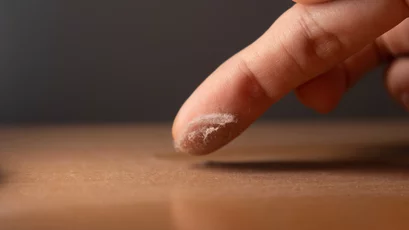Allergies and Flooring
All you need to know about Allergies and flooring
All over the world, different types of allergies are common in people. Specialists say we rear allergens or allergy stimulants in our homes. The American Foundation for allergy and asthma has suggested hardwood floors for homes where people suffer from allergies or asthma. Hardwood flooring does not only provide a beautiful and chic look to your home but it is also easy to clean and eliminates the chance of allergies. In this article, we will discuss how we facilitate allergens in our homes and what measures should we take to prevent ourselves from allergies.
Why do allergies develop?
Our immune system is an active line of defence that protects our body from invading viruses and bacteria. Whenever a disease-causing bacteria enters our body the immune system fights against it and releases the chemical histamine. Histamine causes inflammation on the skin to express that the immune system is in action. Sometimes our immune system mistakenly takes a dust particle, inert fungal mold, or pollen as a harmful substance and starts fighting against it. The resulting histamine production causes inflammation, itching, running nose, and watery eyes.
What is the relationship between Allergies and Flooring?
The flooring of your home is directly linked with allergies. You spend more than 60% of your time in your home. That means you are in contact with your home environment for more than half of your day. A carpeted floor is your worst enemy if you are allergic to dust, pollen, etc. A carpet is the best reservoir and shelter for allergy stimulating particles. This is why you should have your carpets cleaned on regular basis.
Especially, having a carpet in your bedrooms or living rooms can be seriously problematic because your chance of exposure to allergens increases. On the other hand, wooden floors are preferred and recommended to be installed in homes. They not only reduce the probability of allergy symptoms but also offer more cleanliness than a carpeted floor. But it is very important to take proper care of old wooden floors because the cracks and gaps in them can store dust and allergy stimulants.
What is the best type of flooring to avoid allergies?
A hardwood flooring is the best option if someone in your family is allergic to dust, dirt, animal hair, or pollens. The solid texture and clear surface of the wooden floor mean no allergy-causing particles will stay. It avoids allergy onset and saves you from histamine upsurge. Moreover, wooden flooring gives a nicer and more characteristic look to your home. The proper finish on your hardwood floors, for example from the Pallmann range, make them last longer and prevent scratches and cracks. Hardwood flooring is also preferred by modern architecture because it is very easy to clean and maintain.
What are the benefits of wood floors?
Wood floors offer some amazing benefits that are below:
- Easy to clean and easy to remove almost all the troublesome allergy stimulants.
- Offer no place for dust, mold, or bacteria to hide.
- Decrease the chance of allergies by ninety per cent.
- It depicts elegance, gives aesthetic look to your home, and increases the value of your property.
- Hardwood floors maintain the warmth of the room and give a natural vibe.
- If you ever change your mind or wood floor will get worn out you can always have your wood floors sanded or even change the colour.











